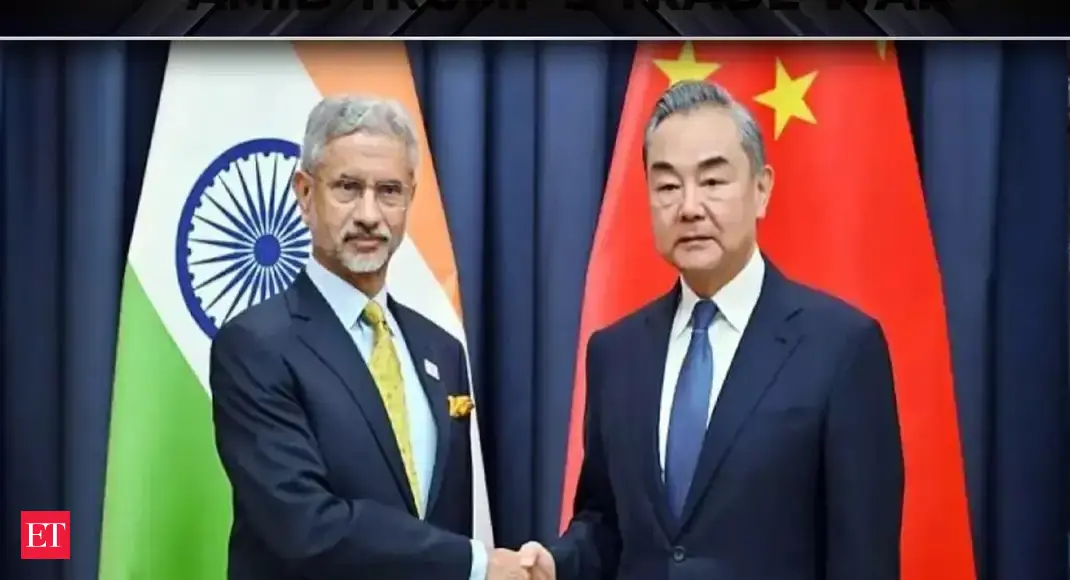

Amidst a backdrop of global economic uncertainty and trade tensions fueled by the United States, India and China are emphasizing the importance of "mutual growth" in their bilateral relations. External Affairs Minister S. Jaishankar met with Chinese Foreign Minister Wang Yi in New Delhi on Monday, where both leaders underscored the need for border peace and acknowledged a "difficult period" in their relationship.
Jaishankar stressed that "differences must not become disputes" and highlighted the importance of "mutual respect, mutual sensitivity, and mutual interest" in moving forward. He also stated that the goal is to build a "stable, cooperative, and forward-looking relationship" that serves both countries' interests and addresses their concerns. Discussions between the two leaders are expected to cover a wide range of issues, including economic and trade matters, river data sharing, border trade, connectivity, and bilateral exchanges. Jaishankar also said he would follow up on concerns he raised with Wang during a July visit to China.
Wang Yi echoed Jaishankar's sentiments, emphasizing the "shared confidence" between the two countries, which he said has helped to "dispel interference, expand cooperation, and further consolidate the momentum of improvement and development of China-India relations". He added that both sides can "contribute to each other's success and provide the most-needed certainty and stability to Asia and the world". Wang also alluded to the global challenges posed by "unilateralism" and threats to free trade and the international order.
The meeting between Jaishankar and Wang Yi is particularly significant as it is the first visit by a Chinese minister to India since both sides reached an understanding last October to end the military standoff on the Line of Actual Control (LAC) that began in April-May 2020. The face-off and a clash in Galwan Valley in June 2020 had brought bilateral ties to a six-decade low.
In addition to discussions on bilateral relations, the two leaders are also expected to exchange views on the global situation and issues of mutual interest. Jaishankar highlighted the "imperative of maintaining and enhancing stability in the global economy" and the fight against terrorism as major priorities. He also expressed India and China's shared desire for a "fair, balanced, and multipolar world order," including a multipolar Asia and reformed multilateralism.
The emphasis on "mutual growth" comes at a time when both India and China are facing challenges due to the trade war initiated by former U.S. President Donald Trump. Amidst global trade and geopolitical turbulence, the two countries have moved to mend ties. Restarting border trade across their icy Himalayan border is expected to feature high on Wang's agenda, which would be significant for its symbolism, and follows agreements to return direct flights and issue tourist visas.
Furthermore, India is currently facing pressure from the U.S. to end its purchases of Russian oil. According to Indian media, Prime Minister Narendra Modi might also visit China this month. Wang is also scheduled to meet with National Security Advisor Ajit Doval to discuss border issues. Jaishankar stressed that maintaining peace and tranquility in the border areas is essential for positive momentum in India-China ties and that the de-escalation process must move forward.